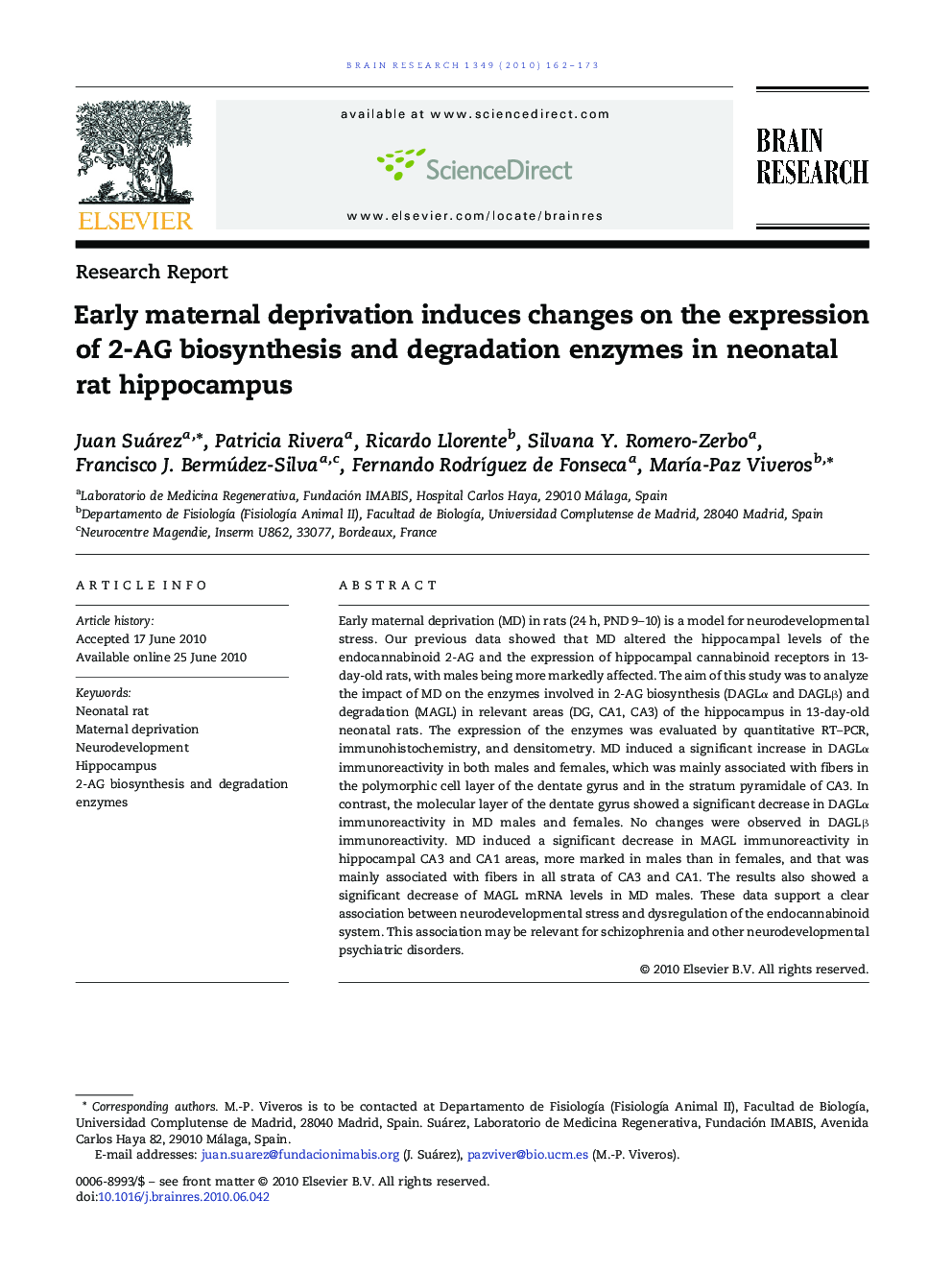| Article ID | Journal | Published Year | Pages | File Type |
|---|---|---|---|---|
| 4326702 | Brain Research | 2010 | 12 Pages |
Early maternal deprivation (MD) in rats (24 h, PND 9–10) is a model for neurodevelopmental stress. Our previous data showed that MD altered the hippocampal levels of the endocannabinoid 2-AG and the expression of hippocampal cannabinoid receptors in 13-day-old rats, with males being more markedly affected. The aim of this study was to analyze the impact of MD on the enzymes involved in 2-AG biosynthesis (DAGLα and DAGLβ) and degradation (MAGL) in relevant areas (DG, CA1, CA3) of the hippocampus in 13-day-old neonatal rats. The expression of the enzymes was evaluated by quantitative RT–PCR, immunohistochemistry, and densitometry. MD induced a significant increase in DAGLα immunoreactivity in both males and females, which was mainly associated with fibers in the polymorphic cell layer of the dentate gyrus and in the stratum pyramidale of CA3. In contrast, the molecular layer of the dentate gyrus showed a significant decrease in DAGLα immunoreactivity in MD males and females. No changes were observed in DAGLβ immunoreactivity. MD induced a significant decrease in MAGL immunoreactivity in hippocampal CA3 and CA1 areas, more marked in males than in females, and that was mainly associated with fibers in all strata of CA3 and CA1. The results also showed a significant decrease of MAGL mRNA levels in MD males. These data support a clear association between neurodevelopmental stress and dysregulation of the endocannabinoid system. This association may be relevant for schizophrenia and other neurodevelopmental psychiatric disorders.
